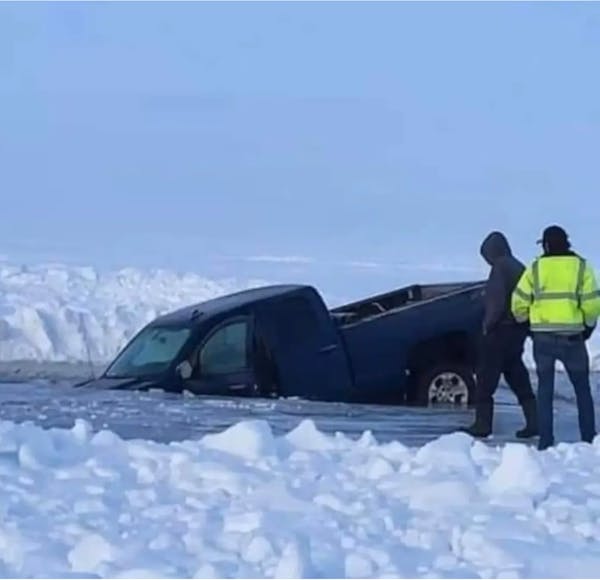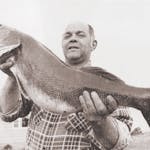If Leah Gruhn has a ceiling to her ambition, she might get a glimpse of it near the top of the world next month.
The Duluth woman is one of 34 entrants (and three women on bikes) in the Iditarod Trail Invitational 1000 (ITI) — a 1,000-mile race on the historic path that summons visions of resilient mushers and dogsled teams that drive on unbowed, no matter the Arctic weather.
Humans also give the perilous route their best shot, a week before the dog teams. Some will ski, some will trek by foot, and others, like Gruhn, will straddle fatbikes and roll from Anchorage beginning Feb. 26. Destination: Nome.
The saddle on her Salsa Mukluk suits Gruhn, 43, comfortably. Her lengthy cycling résumé includes other events on other surfaces, many in the extreme. She rode the 2,745-mile Tour Divide along the length of the Rockies from Banff, Alberta, Canada, to the Mexican border in 2017, undeterred by a brief bout with exhaustion about two-thirds in. She also claimed a record women's time close to home in the North Star Bike Race, 629.4 miles from St. Paul to the Canadian border and back. She did it in under 64 hours in 2022.
In 2010, she volunteered at the hardcore Arrowhead 135 in far northern Minnesota to "see what it was all about from the inside" before signing up as a skier. Others run or ride it. Later that year, a century race (100 miles) — an unprecedented distance at that point for Gruhn as a cyclist — on gravel back roads of the North Shore launched her imagination and determination to go bigger.
"I didn't think I could do it, but I prepared for it, I got lucky, I stuck with it, and I did it," she said. "It was then that I was like, what about this Arrowhead thing? It'd be really cool to try it."
She and her close friend Anne Flueckiger entered in 2011 to ski, but Gruhn had to scratch at about the midway point with tendonitis. Soon after she bought a fatbike from a friend. It's been all in on wheels since.
Crediting her young life experiences as seeds in the fertile soil of adventure, Gruhn (pronounced GREW-en) recalled canoe trips at Camp Widjiwagan in Ely that eventually got more challenging and remote. She extended those skills and knowledge as a Widji staffer, before later moving to Duluth, where she is a geologist. Embracing a landscape and climate built for winter, she relished cross-country skiing and winter camping, the latter serving her well on bike-packing extremes.
Before the ITI 1000, beginning Feb. 26, she'll pursue her 10th finish in the Arrowhead 135 — the 135-mile race from International Falls to Tower beginning Jan. 30 and which, because of its timing, ranks among the toughest endurance events anywhere, and owes its origin to the ITI.
The Arrowhead might sound like an appetizer to the Alaskan wilderness. But Gruhn is taking it seriously and enjoys its community of racers and volunteers.
"I feel like [the Arrowhead] is my backyard … it is so close that it made it accessible to me as a stepping stone," she said.
Arrowhead race director Ken Krueger, who has welcomed Alaskans to his event who come down to test themselves in the bitter conditions, is confident in Gruhn.
"[Leah and her husband, Jeré] are people who sign up and they are going to do good," he added. "I don't have to worry about them."
Gruhn will return to known ground in Alaska, too. She competed in the ITI 350 in 2016, where she placed fifth among seven women. (Jeré is wait-listed to get in the ITI 350 this year.) Competing isn't cheap or she might have gone back sooner, she said. Registration is $1,700. Airfare to Anchorage also must be paid, and, after the finish, a flight back from Nome. And gear and food must be shipped ahead, including a special wheelset being built with Onyx hubs that don't take grease to prevent freezing.
Interestingly, her first recollection of the 350 wasn't the rigor or intense weather or numbed extremities. Gruhn was gobsmacked by the beauty of Alaska, and recalled rolling out of the night into a transcendent dawn through the Rainy Pass northwest of Anchorage.
"I was so amazed by how beautiful Alaska is in a way that is completely different from northern Minnesota," she said.
Prep time
At some of the race's checkpoints, Gruhn will be entirely self-reliant, relying on food and other supplies organizers will place strategically along the route. She brought a stove as backup in the 350, knowing she could get water at checkpoints. This time she'll carry white gas and a single burner to melt snow for water and to help with meal-making.
During a recent weekend of overnight training in Two Harbors, she experimented with a vapor liner to keep moisture from reducing the loft and warmth of her sleeping bag.
"I still have a lot of gear decisions to make," she said. "My mind-set is, this is more of an expedition than a race."
The four women who have finished the southern route — it alternates with a northern route year to year — have rolled into Nome between 18 and 25 days. Gruhn is giving herself three to three and half weeks. The only Minnesotan to complete the ITI 1000 by bike is Mike Madden in 2000.
Gruhn said she is inspired by other Minnesotans like Eric Larson, Lonnie Dupre and Will Steger, who don't see barriers in winter's elements. She'll cycle in a region made accessible by the deep freeze, she said, a rare and precious opportunity.
Knowledge gained from previous adventures helps her ward off self-doubt whenever it creeps in.
"There is that little voice in your head saying, 'Do you know what you are doing?' and I think there really is a productive way to use that. … There is a productive way to channel that in preparing," she said.
Send off party and fundraiser: 5:30 p.m. Feb. 8, Hoops Brewing Co., Duluth. Register at bit.ly/itisendoff.








